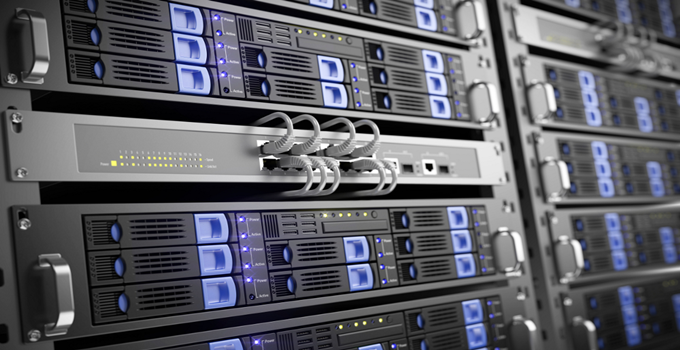RAID Data Recovery
Many businesses rely on RAID storage technology for its increased performance and data stability. Whether you use a standard RAID level array, a non-standard array, or a nested RAID array, RAID storage technology is critical to your business. However, no hardware is completely safe from failure. If your RAID array fails, the highly trained experts at Drive Data Recovery are here to help.
Drive Data Recovery specializes in all types of RAID data recovery. If your RAID array fails, acting quickly is critical to protect your data and limit further RAID crashes. Our high success rate, fast turnaround times, and confidentiality guarantee have made us one of the most trusted names in data recovery. If you need to recover data from any RAID array, contact Drive Data Recovery today.
 Types of RAID Arrays We Recover
Types of RAID Arrays We Recover
RAID devices come in many different forms, including standard RAID level arrays, non-standard arrays, and nested arrays. Our experts are up to date in all types of RAID technology, and we can recover data from any RAID storage device, including:
- Standard RAID Arrays
- RAID 0
- RAID 1
- RAID 2
- RAID 3
- RAID 4
- RAID 5
- RAID 6
- Non-Standard RAID Arrays
- Linux MD RAID 10
- Hadoop
- BeeGFS
- Nested (Hybrid) RAID Arrays
- RAID 0+1
- RAID 1+0
- JBOD RAID N+N
Common Symptoms of Failing RAID Arrays
Consumers, businesses, and manufacturers around the world trust their RAID arrays for daily storage, but no drive is completely safe from failure, which can put your critical data at risk. While some damage can be obvious, many people don’t realize their data is at risk until it is too late.
If you experience any of the following symptoms, contact an expert at Drive Data Recovery today.
- Device crashing or restarting
- Blue or black screen
- Repeated or frequent error messages
- Slow performance or decrease in performance
- Slow data read or write speed
- Device overheating
- Program errors
- Inaccessible or missing data
- Unrecognizable drive
- Clicking or grinding noises from drive
Causes of RAID Failure & Data Loss
Identifying the cause of your data loss is the first step our experts take during the free diagnosis of your RAID array. Once we have identified the cause, we can select the best method to recover your data. You will receive a diagnostic report that details the cause and provides an up-front quote on the cost to recover your data and the time required for the recovery process.
While data loss can occur because of a range of issues or accidents, the three fundamental types of damage that cause RAID failure and data loss are logical drive failure, electrical drive failure, and mechanical drive failure.
Logical drive failure, or corruptions to your storage data, can be caused by improperly shutting down or unplugging your device while the drive is in use, making all or some of your data unreachable.
Electrical drive failure can happen when a surge of electricity hits your device or the flash storage inside. Faulty cables, power outages, and lightning storms can all cause electrical damage.
Mechanical drive failure, or physical damage to your drive, can put your data at risk. Any storage drive can be harmed by physical damage, but RAID arrays are particularly vulnerable, as damage to one drive can cause data loss on all of your connected drives.
Finally, RAID arrays can suffer data loss due to a failure of the controller itself. Most RAID servers rely on a single controller, which can be damaged by electrical or mechanical failure and cause devastating data loss across all your data storage.
What to Do if Your RAID Array Fails
If your device breaks or you realize your data is missing, Drive Data Recovery is here to help. If you cannot access data on your RAID array, follow these steps immediately to improve your chances of fully recovering your data:
- Safely turn off the device containing your RAID array by holding down the power button.
- Remove all cables connected to your drive and remove the storage, if possible.
- Immediately label the drive order of your RAID configuration.
- Do not attempt to restore device power or use free data recovery software found on the web. This software often causes greater damage to the device and can make recovery impossible.
- Contact a specialist at Drive Data Recovery to start your free consultation.
Why Choose Drive Data Recovery for RAID Recovery?
Your data is important, so when your RAID array fails, you need a trusted data recovery and RAID array specialist. The experts at Drive Data Recovery are qualified to recover data from all RAID arrays and all hardware configurations. Our clients depend on our reliability and high success rate, and our data recovery times are some of the fastest in the country. We know the importance of security, which is why we provide a confidentiality guarantee that your data is secure at every step of the data recovery process.
As soon as we receive your device at any of our facilities, we will begin our free diagnosis process. You will receive a detailed diagnostic report and quote for your device, usually within 72 hours. Once you have approved the data recovery process, you will receive your private data within 7 to 10 days. We also offer rush emergency service to our clients for an additional fee.
Don’t wait. Contact a Drive Data Recovery expert to start your free consultation today.